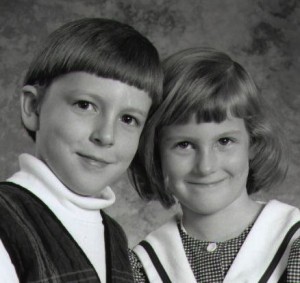
Petty Tyrants come in many forms and present us with many disturbing quandaries. I recently faced a petty tyrant, not a person I had perceived as such before, and it took me a few days to realize that I had been challenged very deeply. My petty tyrant ascertained that I must, of course, feel a certain way.
“No, actually, I don’t feel that way at all,” I responded. But almost immediately a small voice inside me posed a question. “Am I doing something wrong?” it wanted to know, and a feeling that I’m not doing life properly set in. I’m a disappointment. I’m bad. I don’t uphold certain conventions of family, of relationship, the structures of society that are often perceived as so proper and utterly necessary: this is how things are done and if you don’t uphold these standards then something is wrong with you. I was uncomfortable in that moment. A shadow descended and stayed with me for days before I finally realized that a petty tyrant had come into my midst.
A petty tyrant, according to the Seers of Ancient Mexico, is anyone or thing that makes us question ourselves, makes us angry, puts us on the defensive, affronts us or makes us feel foolish, diminished, unworthy. They come to fool with us, to challenge us, and to ask us to face our true selves. Unfathomed by boundaries they slip into our lives and wreak havoc, wrecking our staunch perceptions of the world. Judging, condescending, and selfish, they criticize us and pummel our egos.
In psychological terms, a petty tyrant bears our projections; our deepest issues and fears are placed on another, while we unconsciously ask them to carry them for us. In turn we may despise this other person, find fault with them, disagree with them, and overall find their company disturbing and uncomfortable.
We can stay attached to our petty tyrants for years. We begin our lives with them, in our parents, our teachers, our siblings, our childhood friends and foes. Often they follow us into adulthood, deeply embedded inside us. Along for the ride they find new residence in others we meet and interact with, in those we marry and have relationships with.
In my book, The Man in the Woods, book one of The Recapitulation Diaries, I write of my process of facing the petty tyrants that had haunted and controlled me far into adulthood. I confronted not only people but also ideas, thoughts, and beliefs that had been ingrained in the natural process of growing up in the family and society I encountered during childhood.
Later, in adulthood, with those conventions still active, I lived steeped in great inner conflict. Uncertain as to what was so wrong with me, I nonetheless knew that I was deeply wounded. However, I could not allow myself to attach much significance to that deep inner truth, for I had been taught that it was selfish to even think about the self in any way. Time and thoughts were meant to be utilized in the rational world, in being part of an external world that I found deeply disturbing.
It was not until I faced the disturbing world inside myself that I was finally able to release myself from that disturbing outer world that I just could not find a foothold in. Through recapitulating everything about myself, by allowing myself to be selfish enough to do deep inner exploration, I found my way through a myriad of false impressions and beliefs. Fully conscious, I faced and did battle with all manner of petty tyrants during my recapitulation. I reconnected with my inner spirit, the quiet one within, who had been calling to me for decades, asking me to find her again and live her life, a life of individuality and freedom, open to a far greater world than the conventional, rational, fearful one I had grown up in.
I think I did a pretty good job of recapitulating, so that when I recently found myself being challenged to react in an expected way, I immediately recoiled. “No, I don’t think that way at all!” But in the next second I found myself stumbling before this mighty view of reality. I faltered in the face of expectation that, of course, I would give the correct, pat answer, that I would agree, conventional boundaries upheld, the world as it should be, undisturbed.
In the second that I stumbled, I became inarticulate, and the inner child self immediately stepped in and asked that old question, “Oh dear, am I bad? Am I heartless, cold and unfeeling because I don’t think like that anymore?”
Now I see that I was set up to confront the decisions I make every day as I continue my journey. I have been offered such freedom as I have shed old world structures and ideas that I no longer believe in or care to uphold. No, I was being challenged to more firmly realize just how committed I am to my path.

For a short while my foot wavered as I lifted it, ready to take my next step. Where would I put it down? Would I let it fall back in an old world, simply for convention’s sake, to appease the petty tyrant? Or would I let it fall solidly on the path I have been on for so long now, committed to following my spirit, in spite of what others might think of me? Could I shed my ego in more ways than one, inflated ego and deflated ego alike, and stay true to my evolving spirit self?
As I put my foot firmly down on my spiritual path, solidly aligned with my recapitulating self, I also acknowledged the role of the petty tyrants in my life. Those petty tyrants do indeed still step out of the shadows and challenge me. Some of them I am used to. I meet them regularly enough and I am rarely thrown by them. But there are others, friends and strangers alike, who offer more abrupt and unexpected challenges. And then the question becomes, whom do I disappoint, them or my spirit? I choose the path of my spirit every time, even if it takes me a few days to realize that I have been wavering, confused, doggedly pursued by a petty tyrant.
Now, having recognized the situation for what it was, I am once again back on track, seeking balance in this world while simultaneously exploring the meaning and possibilities that lie ahead, in this world and all worlds.
As boundaries between worlds constantly dissolve, I find that we are all petty tyrants, to ourselves as well as to others. We challenge as much as we are challenged. Can we accept ourselves in such roles? In addition, I have discovered that my inner spirit is my own greatest petty tyrant, the quiet one within who constantly challenges me to keep questioning and keep questing. Who are your petty tyrants and how do they challenge you?
Recapitulating in everyday life is the way to keep changing and growing, to stay connected to the quiet one within, the inner spirit self who, we discover, knows all.
Much love to you all, as you take your journeys,
Jan






